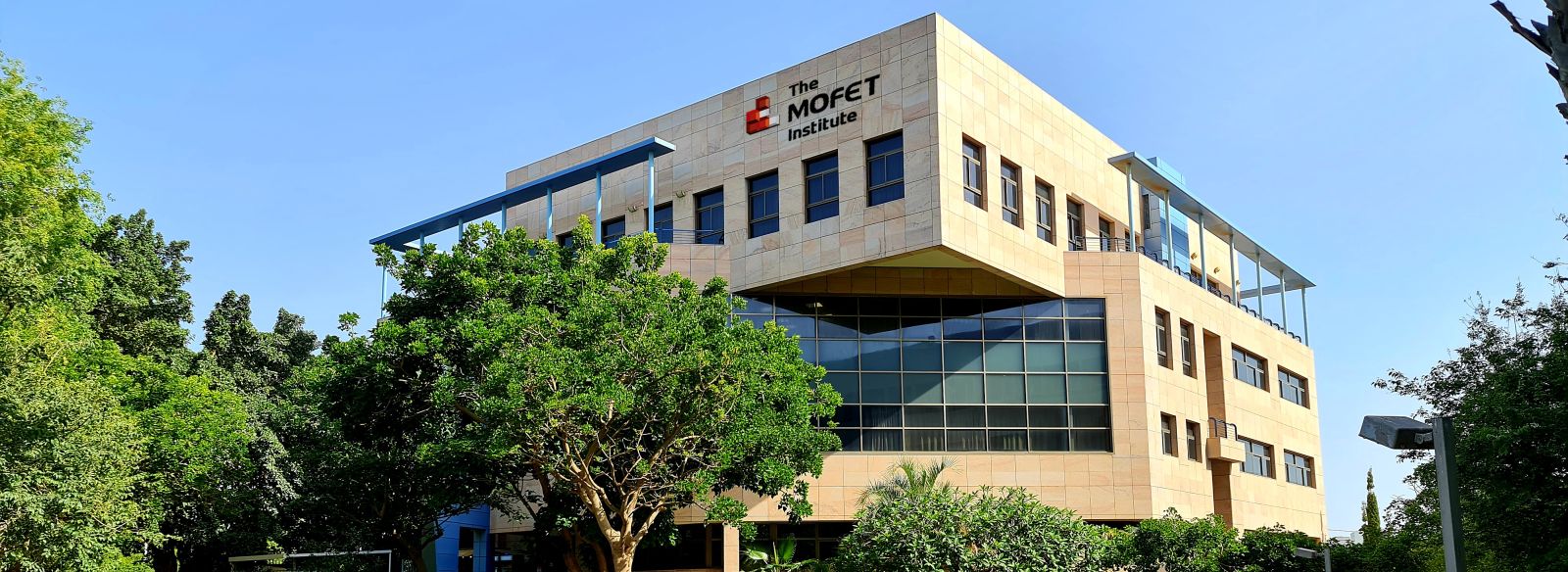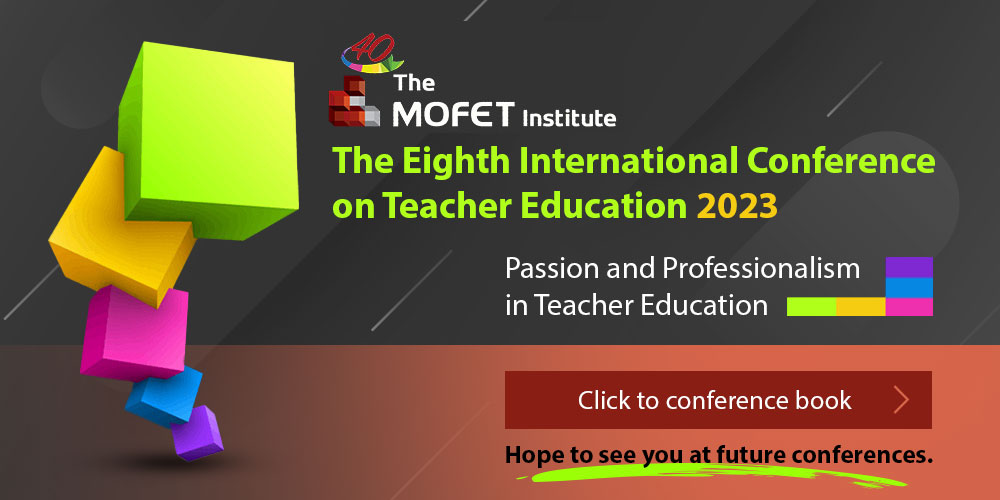We are pleased to present to you MOFET’s
updated Catalog of Projects.
The catalog includes nine of MOFET’s central projects and frameworks. If you wish to collaborate with us in one (or more) of these initiatives, please write to us at
international@macam.ac.il

and Program Development in
Teacher Education and Education
To this end, the Institute operates three central networks that work together to advance the fields of research, development, application and professional studies
DEVELOPMENT NETWORK:
Developing professional programs for influencing and improving education and training systems in Israel and around the world:
- Professional Learning Communities (PLCs)
- The TEC Center (Technology, Education and Culture)
- Simulation in Teacher Education
RESEARCH NETWORK:
Conducting applied research, assessing innovative programs and disseminating research findings on the national and international levels:
- EU Projects
- Literature Reviews
- Academic Content Portals
PROFESIONAL LEARNING NETWORK:
Learning and advancing the professional specialization of academic staff in education and in teacher training:
- The School for Professional Development
- Online Academy
- Conferences, Study Days and Workshops
National and International Networking, Resources and Collaboration
The MOFET Institute deals with research and development of programs for teacher education, in the advancement of innovative training tools, and in the professional development of teaching personnel.
Developing professional programs for influencing and improving education and training systems in Israel and around the world:
Professional Learning Communities (PLCs)
Groups of educators that meet on a regular basis, share expertise, investigate their practices and work collaboratively to improve teaching skills and the academic performance of students.
The TEC Center (Technology, Education and Culture)
The center develops and runs a wide range of programs that operate in the education system, while utilizing online learning activities to forge connections between educational institutions from different cultures.
Simulation in Teacher Education
Group encounters between teachers and educators in order to practice interpersonal communication skills in conflict situations, to discuss these experiences in a safe environment and to promote coefficient reflection on the learning process.
Research Network
Conducting applied research, assessing innovative programs and disseminating research findings on the national and international levels:
EU Projects
The MOFET Institute attributes strategic importance to its participation in European projects, and has taken certain decisions and actions to this end.
Literature Reviews
Analytical literature reviews summarize research papers, research reports, curricula, guidelines, and models in the specific topic.
Academic Content Portals
Free of charge unique online academic portals on teacher training and teaching, for the use of all researchers and educators around the world.
Professional Learning Network
Learning and advancing the professional specialization of academic staff in education and in teacher training:
The School for Professional Specialization
Teaching in academia demands specialization. The School fosters academic staff members, in teacher education institutes, who wish to foster their expertise and advance in academia.
Online Academy
A variety of online courses that focus on didactics and teaching tools, and aim to provide a professional and accessible framework for all those engaged in teaching and education to develop.
Conferences, Study Days and Workshops
Developing professional knowledge and establishing learning communities by means of diverse and up-to-date study settings. We offer platforms and frameworks for collegial encounters and facilitate both face-to-face and distance learning.










